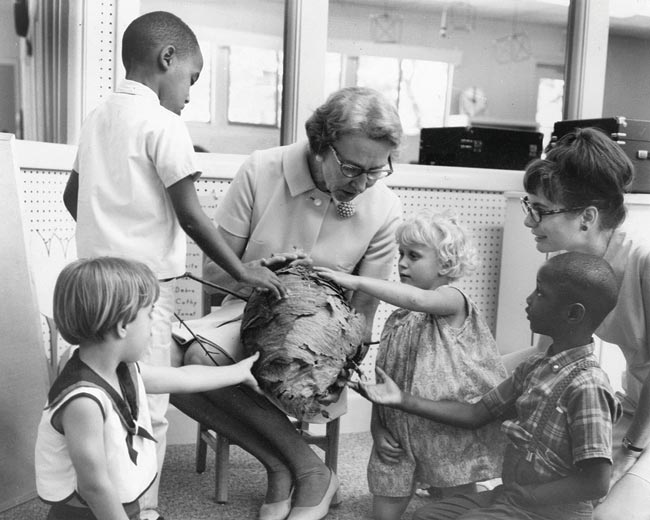
Susan Gray, a renowned Peabody psychologist and Vanderbilt Kennedy Center co-founder, saw the effects of poverty on children’s intellectual and social development and believed it needed to be a central concern. Making her mark in a male-dominated faculty, she led the center’s Demonstration and Research Center on Early Education, which included classrooms in the center’s Experimental School. Gray’s Early Training Project was credited as the inspiration for Head Start, a national program of the U.S. Department of Health and Human Services that provides early childhood education, health, nutrition and parent involvement to low-income families.
In the 1970s, Peabody professors Diane and Bill Bricker founded the Infant-Toddler Learning Project, which showed that children with and without disabilities could learn well together. That research was a precursor to today’s inclusive early childhood education. These and other Kennedy Center model demonstration projects changed the landscape of early childhood education and special education by integrating children of different races and abilities.
Today, Peabody special educators continue to develop and disseminate evidence-based practices in language and social skills development for Head Start and other early childhood educators and parents. The Experimental School, renamed the Susan Gray School in 1986, continues as a model of early learning, where children with disabilities and typically developing children learn side by side.